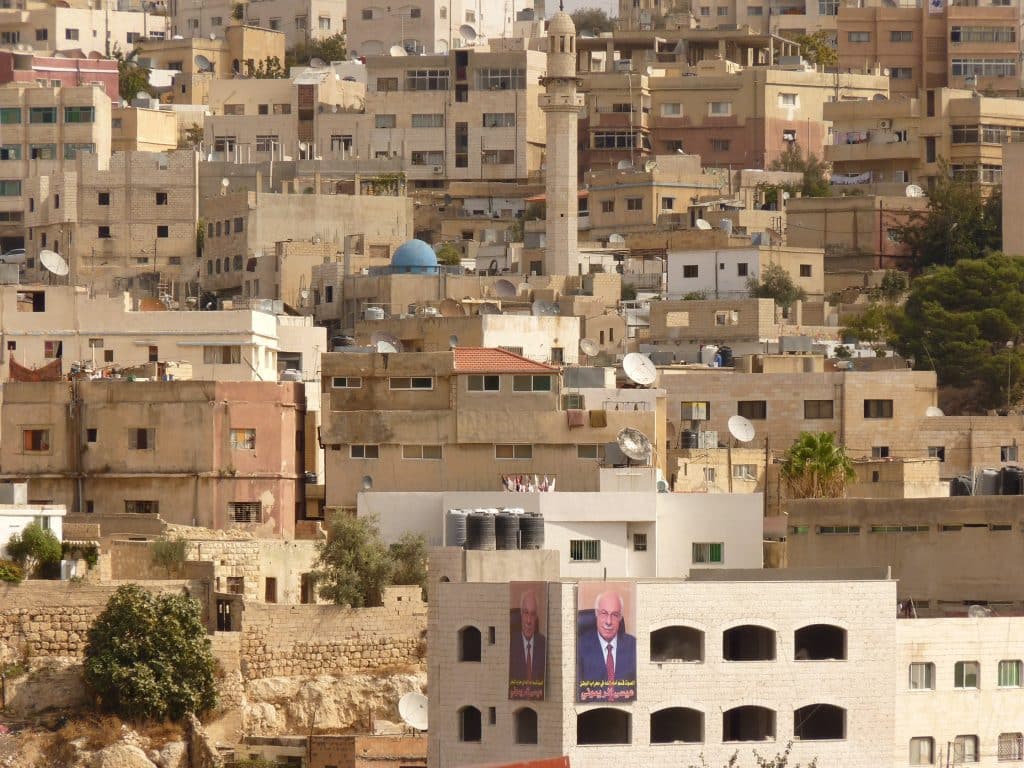Photo: cityscape Jerash, city north of Amman - Flickr
On 10 September, Jordan held its first parliamentary elections since major reforms in the electoral system and also since the start of the current Israel-Gaza conflict. As a neighbouring country, Jordan has diplomatic drawn up against both sides, but the situation in the region has both social and political impact. In addition to this, there are political reforms implemented in 2022, aiming to give more influence to political parties in parliament, and to limit the power of candidates with strong support from influential tribal groups. How did these events affect Jordan's 2024 elections?
Board not representative
To begin with, we summarise the context of Jordanian politics. Currently, Jordan's form of government is a parliamentary constitutional monarchy, which means that the monarch, in this case King Abdullah II, has broad political power. The king is able to pass or veto laws and decrees and appoint all 69 members of the Upper House and ministers. The 138 members of the lower house of parliament are chosen by the people, through elections.
This is the stage for the people to make their views heard and cast their votes in the hope that their interests will be represented. However, there is little enthusiasm about the elections as most of the seats in the House of Representatives are occupied by MPs from rural districts. Representatives from these areas are overrepresented compared to urban areas. Moreover, in the current political system, they are propelled by their strong ties to the integral tribalist society of Jordan and by their loyalty to the monarchy.
From 30 to 41 seats for political parties
So far tribal, centrist and pro-government MPs have thus prevailed in parliament, leaving behind Islamist and liberal opponents, who gain support mainly in the big cities. Reforms were introduced in 2022 for this reason, which saw the gradual increase of seats in the Lower House earmarked for political parties from 30 to 41, allowing political parties to have a greater impact. Also, passed a reform that lowers the threshold for small political parties to win seats in local constituencies, creating more competition. In addition reforms were aimed at involving more women and young people in the political system, by introducing quotas for political parties that at least one woman must be among the first three candidates and at least one candidate under 35 must occupy a spot among the first five candidates. Jordan has been gradually democratising its electoral system for decades and the reforms of two years ago are part of a long-term plan for a healthy multiparty system and a greater role for political parties.
Jordan's delicate balancing act
Jordan has 31 registered political parties, only a few of which are of serious size. This is partly because the king holds exceptional power and the state sometimes suppresses parties, in addition to which the political system is still evolving. The only political party that plays a real role in the legislature is the Islamic Action Front (IAF), the largest opposition party and political arm of the Muslim Brotherhood in Jordan. They have been expressing their aid to Palestine, seek to reduce normalisation with Israel, stand for the creation of a Palestinian state and have also organised several protests for this.
Jordan has been in the lead since the Israel-Gaza conflict, which broke out on 7 October, and for years before that balance have to keep between the two sides. And even now, Jordan has maintained its strategic and diplomatic relations with Israel and the West, shooting Iranian missiles out of the sky en route to Israel, while at the same time the king publicly calls for aid troops to enter the area and lobbies for a ceasefire. But is this middle line enough to keep the population happy?
Rise of Islamists in Jordanian parliament
About half of the country's population is made up of people with roots in Palestine. Jordan is the only country in the region that has accepted Palestinians as citizens after forced displacement from their homeland, such as during the Nakba in 1948 and ongoing successive wars, causing them to flee to neighbouring countries. Jordan therefore has a large number of citizens of Palestinian origin and many (recent) Palestinian refugees living mainly in the major cities. This group was therefore also expected, and proved, to have a clear voice to show their support for their homeland, which is what the IAF stands for. On top of this, concerns about the economic state of the country were also reason to vote for a party that is not pro-government and advocates major changes in the social and political landscape. Unemployment namely, was 21 per cent in the first quarter of 2024, and with the current conflict in neighbouring countries, the lucrative tourism sector, which accounts for 14 per cent of GDP, significantly reduced.
The combination of democratic reforms, anger over the monarchy's moderate stance towards Israel and economic problems have driven many voters to vote for a party that could bring change. In the last election, the IAF became the largest party, as expected, and its representation was tripled from 10 seats in 2020 to 31 out of 41 seats in 2024. A historic outcome for the party that According to Murad Adailah, leader of the Muslim Brotherhood in Jordan, a result of the desire for change: ''Those who voted for us were not necessarily all Islamists, but wanted change and were fed up with the old habits."
Democracy one step closer
As expected the war in Gaza has had a major impact on the outcome of elections with increasing support for Islamists. With more influential political parties and a better reflection of society and public opinion in politics, Jordanian democracy is booming after a period of stagnation. It is to be hoped that Jordan's system and political culture can maintain this development.




